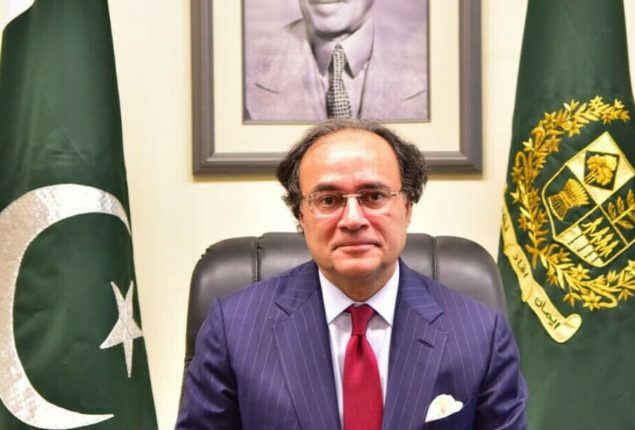
Pakistan’s economic reforms on right path, says finance minister
China’s response to Pakistan’s request to extend the maturities of debt associated with the Belt and Road Initiative has been positive, according to Pakistan’s finance minister. This development signals potential relief for the nation, which has been struggling with the burden of expensive past borrowing.
Pakistan is seeking to extend the maturities of loans taken to finance power plants in order to “create enough space” to reduce electricity costs, said Finance Minister Muhammad Aurangzeb during an interview in Washington. Electricity prices have surged threefold for some Pakistanis in recent years, even surpassing housing costs for some households.
“We have just initiated the discussions, and the response has been encouraging,” Aurangzeb stated during an interview, conducted on the sidelines of the annual International Monetary Fund (IMF) and World Bank meetings. He noted that it’s still early in the negotiations. Aurangzeb, who previously worked with JPMorgan Chase & Co., engaged in debt discussions with Chinese officials during a visit to China in July.
The South Asian nation is currently experiencing a period of stability after securing a new $7 billion loan agreement from the IMF. Pakistan’s partners, including China, have already rolled over $16 billion of debt from a total of around $26 billion due in the current fiscal year, which started in July.
Aurangzeb emphasized the need for Pakistan to maintain fiscal discipline, aiming to increase its tax-to-GDP ratio from below 10% to 13.5% in order to avoid future reliance on IMF borrowing. Pakistan has previously engaged in 25 loan programs with the IMF, making it one of the institution’s most frequent borrowers. He added that the government plans to discuss additional financing from the IMF through its climate resiliency fund during the ongoing meetings in Washington.
To achieve its fiscal targets, Pakistan intends to focus on sectors such as retail and agriculture, which have previously resisted taxation. Legislation concerning agricultural taxes is expected to move forward at the provincial level by January, with collection anticipated to begin by July.
As a key partner in China’s Belt and Road Initiative, Pakistan has benefited from investments that ended decades-long power shortages. The nation is now looking to extend the maturity of loans for nine power plants built by Chinese companies as part of a multibillion-dollar economic corridor.
Pakistan’s stability is further reflected in a significant slowdown in inflation, reaching its lowest level in almost four years. The country’s short-term local government bonds are poised to receive their first annual foreign inflows in five years, driven by high yields and a stable rupee. The benchmark stock index has surged 70% over the past year, making it the best-performing stock market globally.
Additionally, the central bank has lowered its benchmark interest rate by 450 basis points to 17.5% from a peak of 22% across three consecutive policy meetings. The next meeting on November 4 may see a further reduction in the policy rate, according to Aurangzeb.
Read More News On
Catch all the Pakistan News, Breaking News Event and Latest News Updates on The BOL News
Download The BOL News App to get the Daily News Update & Follow us on Google News.



